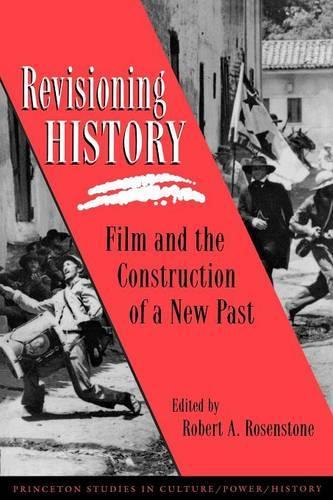
Revisioning History: Film and the Construction of a New Past
(Paperback)
Publishing Details
Revisioning History: Film and the Construction of a New Past
By (Author) Robert A. Rosenstone
Princeton University Press
Princeton University Press
14th March 1995
United States
Classifications
Professional and Scholarly
Non Fiction
Historiography
791.43658
Physical Properties
Paperback
264
Width 152mm, Height 235mm
369g
Description
In Revisioning History thirteen historians from around the world look at the historical film on its own terms, not as it compares to written history but as a unique way of recounting the past. How does film construct a historical world What are the rules, codes, and strategies by which it brings the past to life What does that historical construction mean to us In grappling with these questions, each contributor looks at an example of New History cinema. Different from Hollywood costume dramas or documentary films, these films are serious efforts to come to grips with the past; they have often grown out of nations engaged in an intense quest for historical connections, such as India, Cuba, Japan, and Germany. The volume begins with an introduction by Robert Rosenstone. Part I, "Contesting History," comprises essays by Geoff Eley (on the film Distant Voices, Still Lives), Nicholas B. Dirks (The Home and the World), Thomas Kierstead and Deidre Lynch (Eijanaika), and Pierre Sorlin (Night of the Shooting Stars). Contributing to Part II, "Visioning History," are Michael S. Roth (Hiroshima Mon Amour), John Mraz (Memories of Underdevelopment), Min Soo Kang (The Moderns) and Clayton R.Koppes (Radio Bikini). Part III, "Revisioning History" contains essays by Denise J. Youngblood (Repentance), Rudy Koshar (Hitler: A Film from Germany), Rosenstone (Walker), Sumiko Higashi (Walker and Mississippi Burning), and Daniel Sipe (From the Pole to the Equator).
Reviews
"This excellent book of 13 articles explores how films construct an image of the past... Revisioning History asks: what are the particular set of rules by which the past in represented on moving images How does the present influence the representation of the past in films Dealing with such topics as colonialism and Nazism, the films were made in the United States, Europe, Asia, and Latin America."--Virginia Quarterly Review
Author Bio
Robert A. Rosenstone is Professor of History at the California Institute of Technology.
